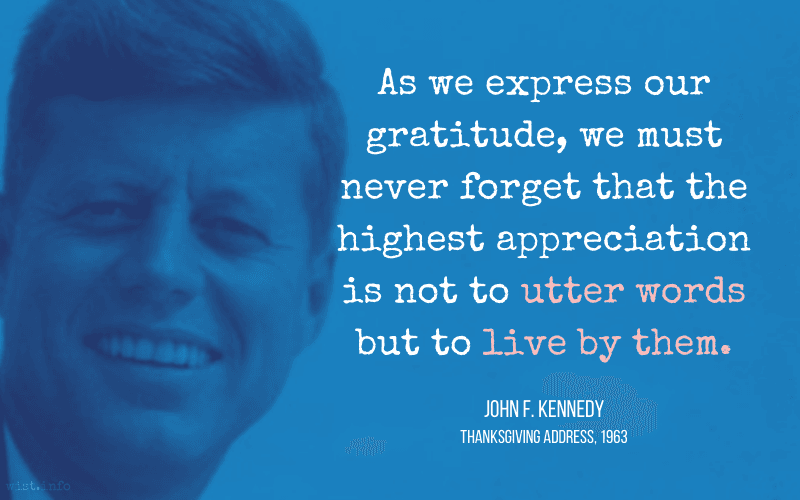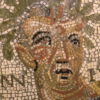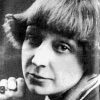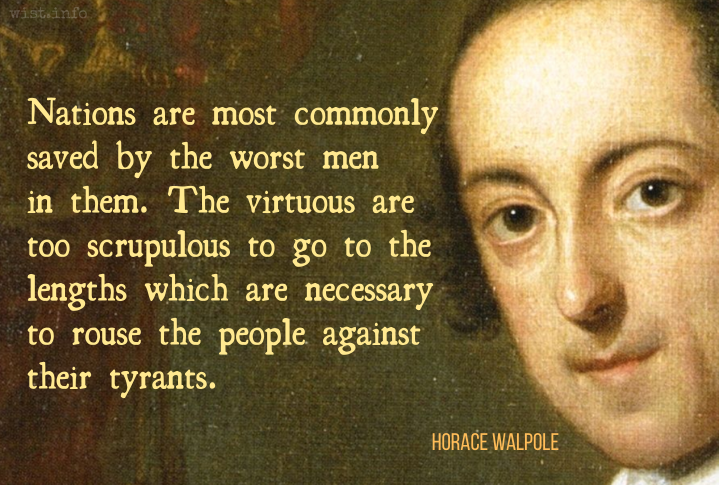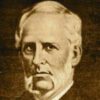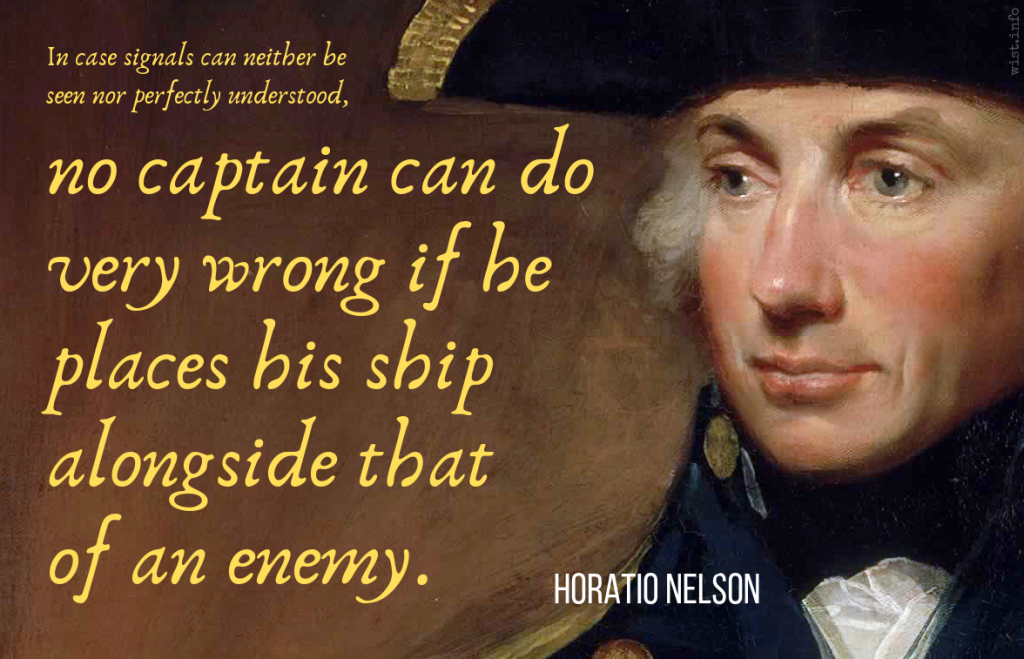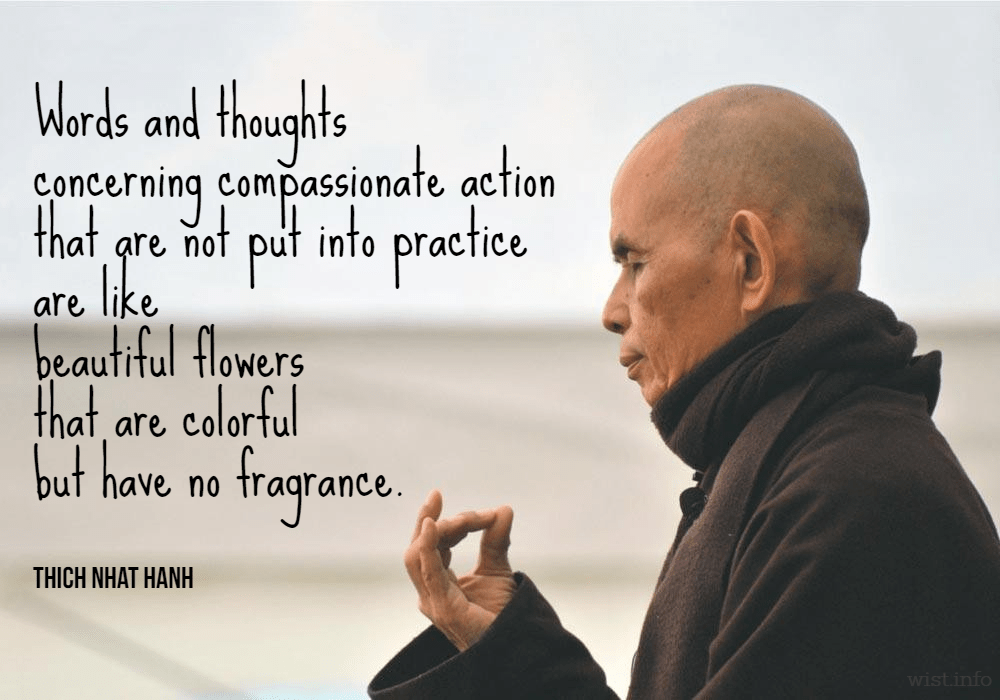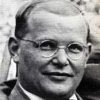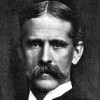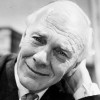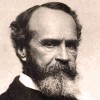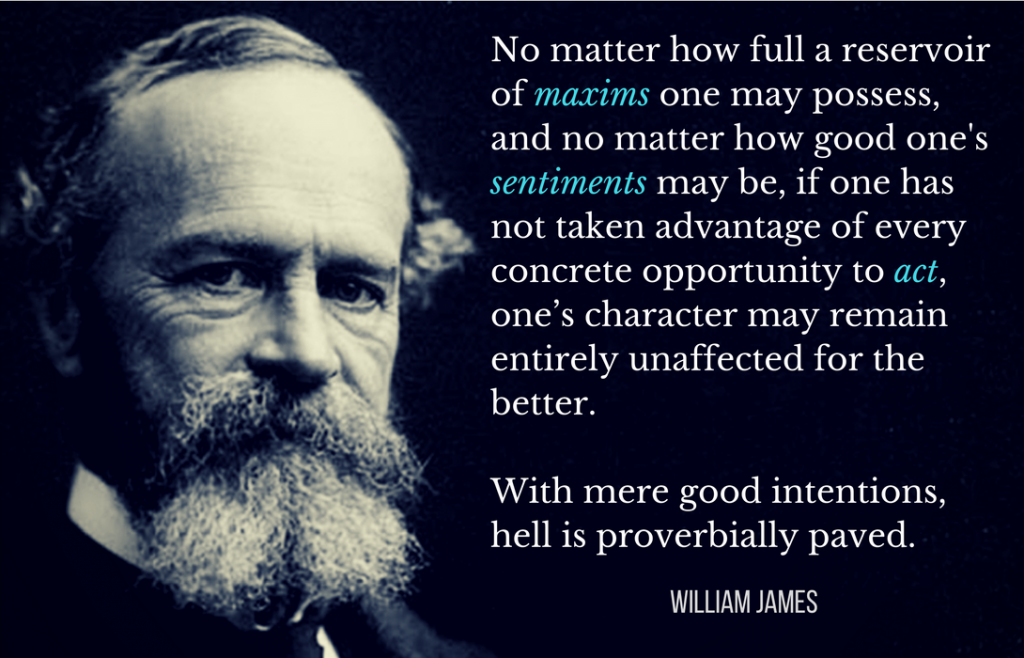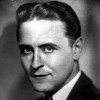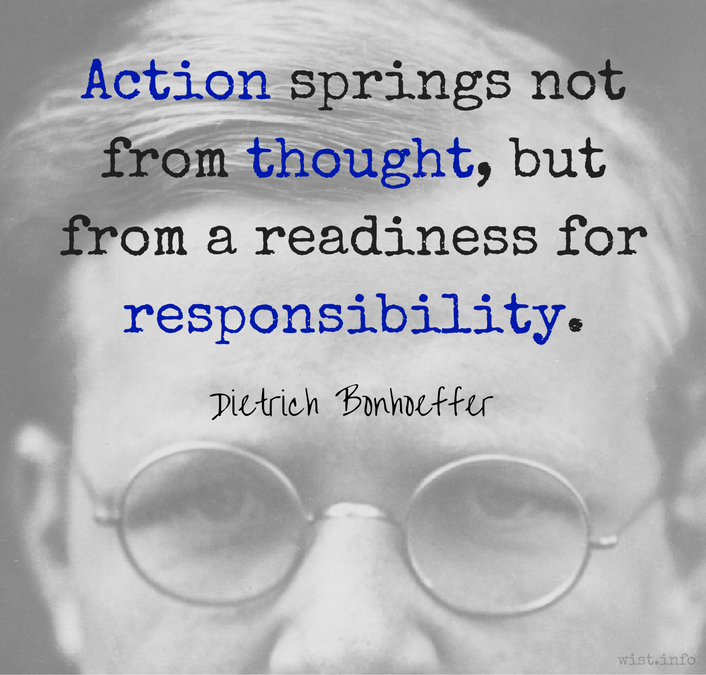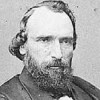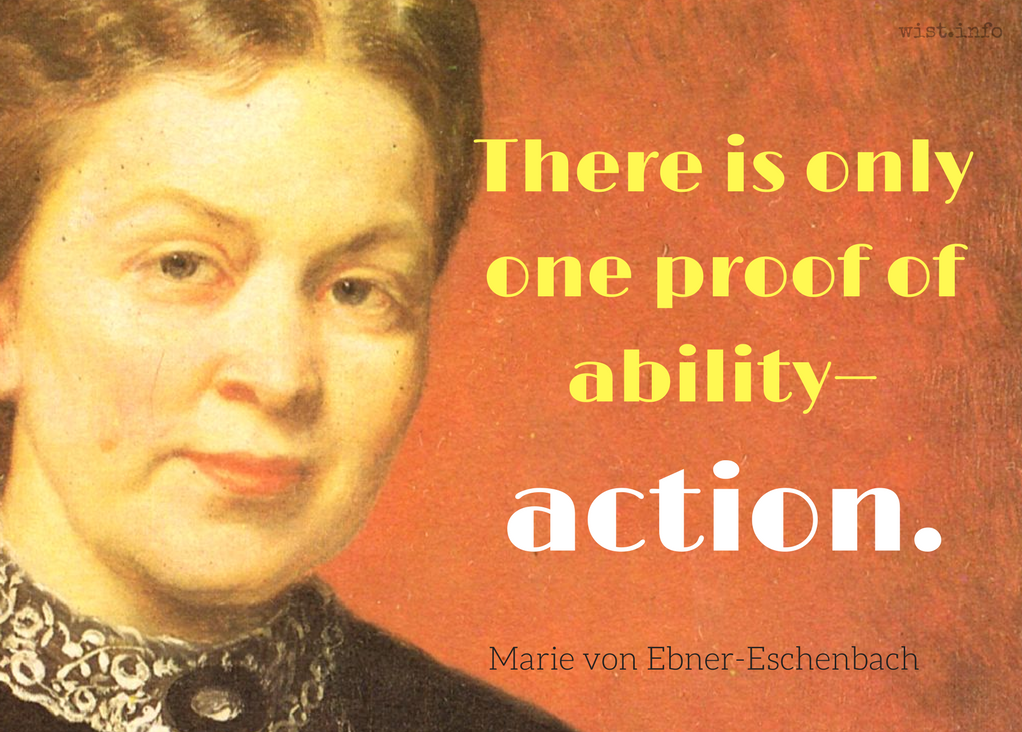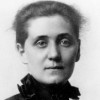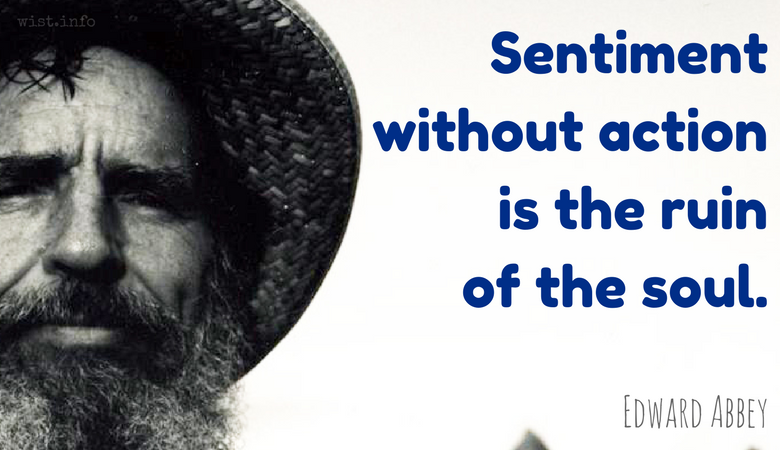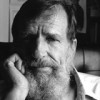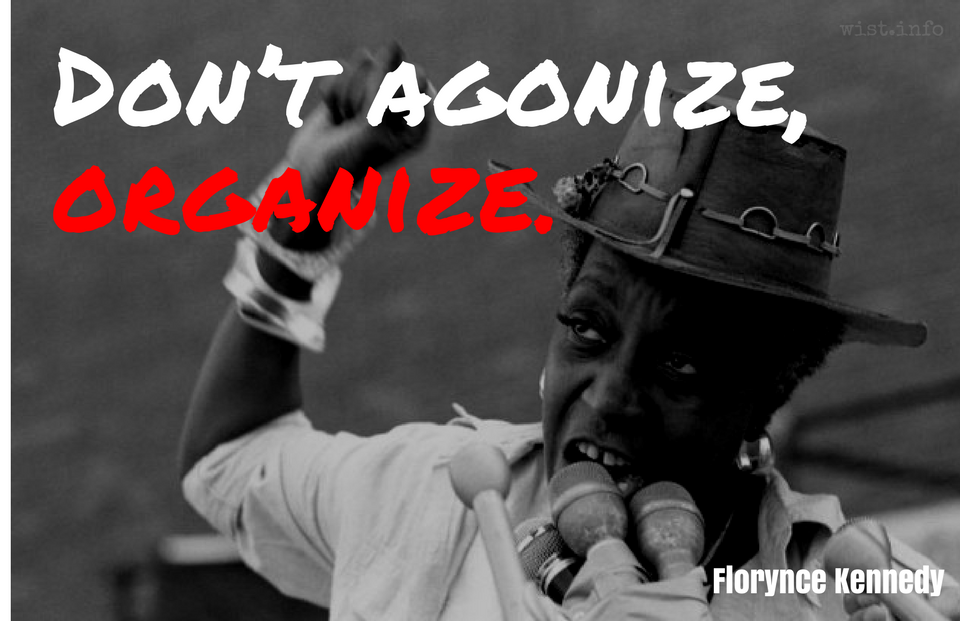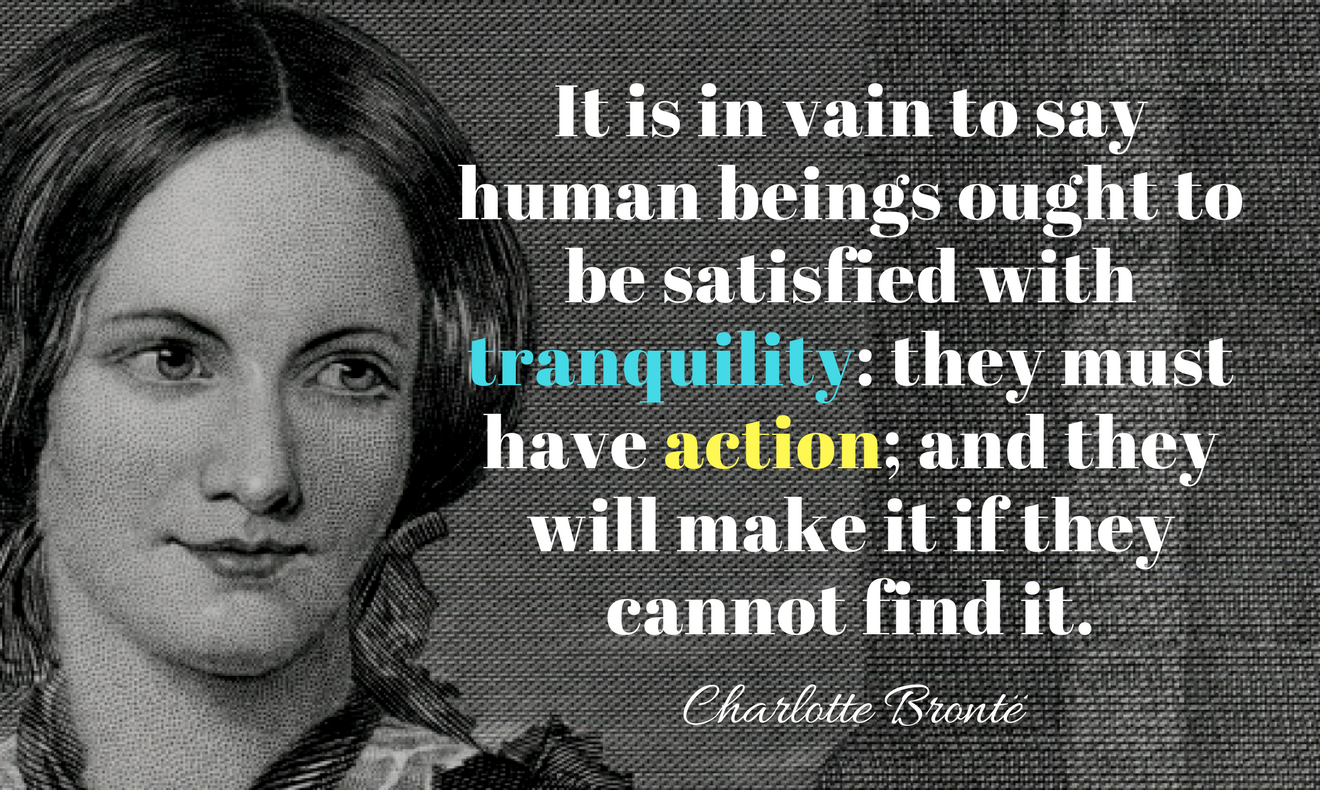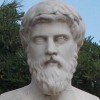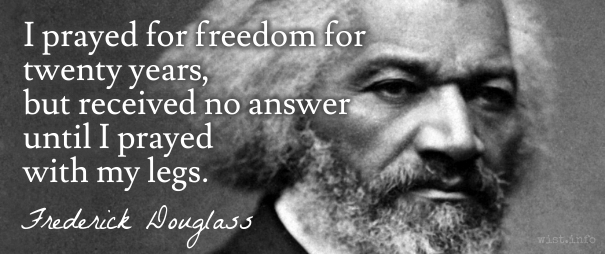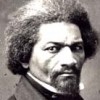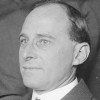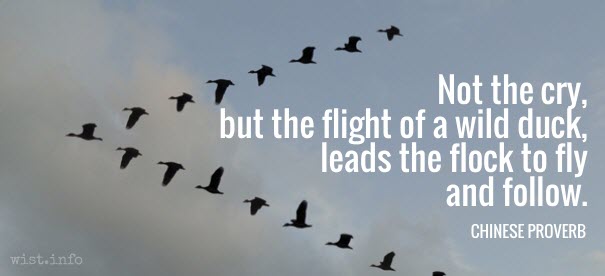DEXTER: I’d rather do something and make a mistake, than be frightened into doing nothing. That’s the problem back home. Folks have been conned into thinking they can’t change the world. Have to accept what is. I’ll tell you something, my friends, the world is changing every day. The only question is, who’s doing it?
J. Michael (Joe) Straczynski (b. 1954) American screenwriter, producer, author [a/k/a "JMS"]
Babylon 5, 3×20 “And the Rock Cried Out, No Hiding Place” (14 Oct 1996)
See Straczynski.
Quotations about:
action
Note not all quotations have been tagged, so Search may find additional quotes on this topic.
The moral is that it is probably better not to sin at all, but if
some kind of sin you must be pursuing,Well, remember to do it by doing rather than by not doing.
Ogden Nash (1902-1971) American poet
“Portrait of the Artist as a Prematurely Old Man” (1959)
(Source)
It is common knowledge to every schoolboy and even every Bachelor of Arts,
That all sin is divided into two parts.
One kind of sin is called a sin of commission, and that is very important
And it is what you are doing when you are doing something you ortant.
And the other kind of sin is just the opposite and is called a sin of omission and is equally bad in the eyes of all right-thinking people, from Billy Sunday to Buddha,
And it consists of not having done something you shudda.
Do you believe?
Belief will not save you.
Only actions
Guided and shaped
By belief and knowledge
Will save you.
Belief
Initiates and guides action —
Or it does nothing.Octavia Butler (1947-2006) American writer
The Parable of the Talents, ch. 20, epigraph (1998)
(Source)
Think not the faith by which the just shall live
Is a dead creed, a map correct of heaven,
Far less a feeling fond and fugitive,
A thoughtless gift, withdrawn as soon as given.
It is an affirmation and an act
That bids eternal truth be present fact.Hartley Coleridge (1796-1849) English poet, biographer, essayist, teacher
“The Just Shall Live By Faith”
(Source)
Ideas must work through the brains and the arms of good and brave men, or they are no better than dreams.
Ralph Waldo Emerson (1803-1882) American essayist, lecturer, poet
“American Civilization,” lecture, Smithsonian Institution, Washington, DC (1862-01-31)
(Source)
And as she looked about, she did behold
How over that same door was likewise writ,
Be bold, be bold, and everywhere Be bold,
That much she mused, yet could not construe it
By any riddling skill or common wit.
At last she spied at that room’s upper end
Another iron door, on which was writ,
Be not too bold.Edmund Spenser (c. 1552-1599) English poet
The Faerie Queen, Book 3, Canto 11, st. 54 (1590-96)
(Source)
Today we give our thanks, most of all, for the ideals of honor and faith we inherit from our forefathers — for the decency of purpose, steadfastness of resolve and strength of will, for the courage and the humility, which they possessed and which we must seek every day to emulate. As we express our gratitude, we must never forget that the highest appreciation is not to utter words but to live by them.
John F. Kennedy (1917-1963) US President (1961-63)
Thanksgiving Day Proclamation (4 Nov 1963)
(Source)
The 1963 Proclamation was written, finalized, and distributed prior to Kennedy's assassination, six days before Thanksgiving.
No sooner said than done — so acts your man of worth.
[Dictum factumque facit frux.]
Ennius (239-169 BC) Roman poet, writer [Quintus Ennius]
Fragment 315 [tr. Warmington]
(Source)
Quoted in Priscianus, Ars Prisciani, Book 6.
Yet I think that to all living things there is a pleasure in the exercise of their energies, and that even beasts rejoice in being lithe and swift and strong. But a man at work, making something which he feels will exist because he is working at it and wills it, is exercising the energies of his mind and soul as well as of his body. Memory and imagination help him as he works. Not only his own thoughts, but the thoughts of the men of past ages guide his hands; and, as a part of the human race, he creates. If we work thus we shall be men, and our days will be happy and eventful.
William Morris (1834-1896) British textile designer, writer, socialist activist
“Useful Work versus Useless Toil,” lecture (1884)
(Source)
Printed in Signs of Change (1888).
Wings are freedom only when they are wide open in flight. On one’s back they are a heavy weight.
[Крылья — свобода, только когда раскрыты в полёте, за спиной они — тяжесть.]
Marina Tsvetaeva (1892-1941) Russian poet
Notebook 1 (1921)
(Source)
Literally "Wings -- freedom, only when opened in flight, behind their backs -- heavy."
How does God’s love abide in anyone who has the world’s goods and sees a brother or sister in need and yet refuses help? Little children, let us love, not in word or speech, but in truth and action.
The Bible (The New Testament) (AD 1st - 2nd C) Christian sacred scripture
1 John 3:17-18 [NRSV (1989)]
(Source)
Alternate translations:
But whoso hath this world's good, and seeth his brother have need, and shutteth up his bowels of compassion from him, how dwelleth the love of God in him? My little children, let us not love in word, neither in tongue; but in deed and in truth.
[KJV (1611)]
If a man who was rich enough in this world’s goods saw that one of his brothers was in need, but closed his heart to him, how could the love of God be living in him? My children, our love is not to be just words or mere talk, but something real and active.
[Jerusalem (1966)]
If we are rich and see others in need, yet close our hearts against them, how can we claim that we love God? My children, our love should not be just words and talk; it must be true love, which shows itself in action.
[GNT (1976)]
If anyone has material possessions and sees a brother or sister in need but has no pity on them, how can the love of God be in that person? Dear children, let us not love with words or speech but with actions and in truth.
[NIV (2011)]
Nevertheless even here, when a man bears patiently a number of heavy disasters, not because he does not feel them but because he has a high and generous nature, his nobility shines through. And if, as we said, the quality of a life is determined by its activities, no man who is truly happy can become miserable; because he will never do things that are hateful and mean.
[ὅμως δὲ καὶ ἐν τούτοις διαλάμπει τὸ καλόν, ἐπειδὰν φέρῃ τις εὐκόλως πολλὰς καὶ μεγάλας ἀτυχίας, μὴ δι᾽ ἀναλγησίαν, ἀλλὰ γεννάδας ὢν καὶ μεγαλόψυχος. εἰ δ᾽ εἰσὶν αἱ ἐνέργειαι κύριαι τῆς ζωῆς, καθάπερ εἴπομεν, οὐδεὶς ἂν γένοιτο τῶν μακαρίων ἄθλιος: οὐδέποτε γὰρ πράξει τὰ μισητὰ καὶ τὰ φαῦλα.]
Aristotle (384-322 BC) Greek philosopher
Nicomachean Ethics [Ἠθικὰ Νικομάχεια], Book 1, ch. 11 (1.11) / 1100b.30-35 (c. 325 BC) [tr. Thomson/Tredennick (1976)]
(Source)
(Source (Greek))
Often highly paraphrased: "Suffering becomes beautiful when anyone bears great calamities with cheerfulness, not through insensibility but through greatness of mind."
Alternate translations:
But nevertheless, even in these, nobility of the soul is conspicuous, when a man bears and digests many and great misfortunes, not from insensibility, but because he is high spirited and magnanimous. But if the energies are the things that constitute the bliss or the misery of life, as we said, no happy man can ever become miserable, for he will never do hateful and worthless actions.
[tr. Vincent (1835)]
But still, even in these, nobleness shines through when a man bears contentedly many and great mischances not from insensibility to pain but because he is noble and high-spirited. And if, as we have said, the acts of working are what determine the character of the life, no one of the blessed can ever become wretched, because he will never do those things which are hateful and mean.
[tr. Chase (1847)]
But nevertheless even here true nobility sines out, when a man bears calmly man and great mishaps, not through dullness of feeling, but from true high-breeding, and greatness of spirit. And since, as we have said, it is our own acts that determine our life, no one of the really blessed can ever become wretched, for he will never do hateful and disgraceful deeds.
[tr. Williams (1869), sec. 17]
Still even in these circumstances nobility shines out, when a person bears the weight of accumulated misfortunes with calmness, not from insensibility but from innate dignity and magnanimity. But if it is the activities which determine the life, as we said, nobody who is fortunate can become miserable; for he will never do what is hateful and mean.
[tr. Welldon (1892)]
But nevertheless true worth shines out even here, in the calm endurance of many great misfortunes, not through insensibility, but through nobility and greatness of soul. And if it is what a man does that determines the character of his life, as we said, then no happy man will become miserable; for he will never do what is hateful and base. [tr. Peters (1893), 1.10.13]
Nevertheless even under these the force of nobility shines out, when a man bears calmly many great disasters, not from insensibility, but because he is generous and of a great soul. Setting happiness then, as we do, not in the outward surroundings of man, but in his inward state, we may fairly say that no one who has attained to the bliss of virtue will ever justly become an object of pity or contempt: for he will never do things that are hateful and vile.
[tr. Stock (1897)]
Yet even in these nobility shines through, when a man bears with resignation many great misfortunes, not through insensibility to pain but through nobility and greatness of soul. If activities are, as we said, what gives life its character, no happy man can become miserable; for he will never do the acts that are hateful and mean.
[tr. Ross (1908), 1.10]
Yet nevertheless even in adversity nobility shines through, when a man endures repeated and severe misfortune with patience, not owing to insensibility but from generosity and greatness of soul. And if, as we said, a man's life is determined by his activities, no supremely happy man can ever become miserable. For he will never do hateful or base actions.
[tr. Rackham (1934), 1.10.12-13]
All the same, even in these cases nobility shines through when someone calmly bears repeated strokes of great bad luck -- not because he is insensitive to suffering but because of being well bred and great-souled. And if it is activities that control living, as we said, no blessed person will ever become wretched, since he will never do hateful or base actions.
[tr. Reeve (1948)]
The beauty of the soul shines out when a man bears with composure one heavy mischance after another, not because he does not feel them, but because he is a man of high and heroic temper. Besides, if it be true, as I affirmed, that the quality of life is determined by its activities, it is impossible for the entirely happy man to become miserable. For he will never be guilty of base or detestable actions.
[tr. Thomson (1953)]
Yet nobility shines out even there, when a man bears many and great misfortunes with calm and ease, not through insensibility to pain, but through nobility of character and highmindedness. Thus if it is the activities that play a dominant role in life, as we have said, no blessed man can become wretched; for he will never do what is hateful or bad.
[tr. Apostle (1975)]
And yet, even here, what is fine shines through, whenever someone bears many severe misfortunes with good temper, not because he feels no distress, but because he is noble and magnanimous. And since it is activities that control life, as we said, no blessed person could ever become miserable, since he will never do hateful and base actions.
[tr. Irwin/Fine (1995)]
What is noble shines through, when a person calmly bears many great misfortunes, not through insensibility, but by being well bred and great-souled. If activities are, as we have said, what really matter in life, no one blessed could become wretched, since he will never do hateful and petty actions.
[tr. Crisp (2000)]
Nevertheless, even in the midst of these, nobility shines through, whenever someone bears up calmly under many great misfortunes, not because of any insensitivity to pain but because he is wellbore and great souled. And if the activities have authoritative control over life, just as we said, then no one who is blessed would become wretched, since he will never do things that are hateful and base.
[tr. Bartlett/Collins (2011)]
Still, nobility shines bright even in tough times, when someone bears even many severe misfortunes patiently, not because they cannot sense them, but because of their unselfishness and greatness of spirit. If the actions one takes rules their life -- as we just said -- then none of the happy people can ever be miserable.
[tr. @sentantiq (2020)]
But all the same, even in these instances, nobility shines through whenever someone good-naturedly bears a multitude of great misfortunes, and does so not because he's numb to pain, but because he's noble and great-souled.
[tr. Benn (2021)]
Nations are most commonly saved by the worst men in them. The virtuous are too scrupulous to go to the lengths which are necessary to rouse the people against their tyrants.
Horace Walpole (1717-1797) English novelist, letter writer
Memoirs of the Reign of King George III, Vol. 1, ch. 12 (1859)
(Source)
Variants:
- "The adventurer's career suggests the reflection that nations are usually saved by their worse men, since the virtuous are too scrupulous to go to the lengths needed to rouse the people against their tyrants." (Source)
- "The virtuous are too scrupulous to go to the lengths that are necessary to rouse the people against their tyrants."
- Modern paraphrase: "No great country was ever saved by good men because good men will not go to the lengths necessary to save it."
- Modern paraphrase: "No great country was ever saved by good men, because good men may not go to the lengths that may be necessary."
Right actions for the future are the best apologies for wrong ones in the past — the best evidence of regret for them that we can offer, or the world receive.
Tryon Edwards (1809-1894) American theologian, writer, lexicographer
A Dictionary of Thoughts (1908)
(Source)
Often wrongly quoted, "... best apologies for bad actions in the past."
In case signals can neither be seen nor perfectly understood, no captain can do very wrong if he places his ship alongside that of an enemy.
Horatio Nelson (1758-1805) British admiral
Memorandum before the Battle of Trafalgar (9 Oct 1805)
(Source)
We do what we must, and call it by the best names we can, and would fain have the praise of having intended the result which ensues.
Ralph Waldo Emerson (1803-1882) American essayist, lecturer, poet
“Experience,” Essays: Second Series (1844)
(Source)
Marriage is not a noun, it’s a verb. It’s not something you have, like a house or a car. It is not a piece of paper that proves you are husband and wife. Marriage is a behavior. It is a choice you make over and over again, reflected in the way you treat your partner every day.
Barbara De Angelis (b. 1951) American relationship consultant, lecturer, author
Ask Barbara: The 100 Most-Asked Questions About Love, Sex, and Relationships (1997)
(Source)
Words and thoughts concerning compassionate action that are not put into practice are like beautiful flowers that are colorful but have no fragrance.
Thích Nhất Hạnh (b. 1926) Vietnamese Buddhist monk and peace activist
Creating True Peace, ch. 1 (2003)
(Source)
An activist is the guy who cleans the river, not the guy who concludes it’s dirty.
H. Ross Perot (1930-2019) American entrepreneur, politician, reformer [Henry Ross Perot, Sr.]
(Attributed)
(Source)
In Ken Gross, Ross Perot: The Man Behind the Myth, ch. 14 (1992). A favorite saying of Perot's, varying slightly over the years (e.g., "The activist is not the man who says the river is dirty. The activist is the man who cleans up the river.").
Agitation is the marshalling of the conscience of a nation to mold its laws.
Robert Peel (1788-1850) British statesman, Prime Minister (1834-35, 1841-46)
(Attributed)
(Source)
Sometimes quoted as "conscience of a people." Widely quoted without source in the late 19th Century (earliest ref. 1881).
If I seem to take part in politics, it is only because politics encircle us today like the coil of a snake from which one cannot get out, no matter how much one tries. I wish therefore to wrestle with the snake.
There are three possible ways in which the church can act toward the state: in the first place, as has been said, it can ask the state whether its actions are legitimate and in accordance with its character as state, i.e., it can throw the state back on its responsibilities. Secondly, it can aid the victims of state action. The church has an unconditional obligation to the victims of any ordering society, even if they do not belong to the Christian community. “Do good to all men.” In both these course of action, the church serves the free state in its free way, and at times when laws are changed the church may in no way withdraw itself from these two tasks.
The third possibility is not just to bandage the victims under the wheel, but to put a spoke in the wheel itself. Such action would be direct political action, and is only possible and required when the church sees the state fail in its function of creating law and order, i.e., when it sees the state unrestrainedly bring about too much or too little law and order.
Dietrich Bonhoeffer (1906-1945) German Lutheran pastor, theologian, martyr
“The Church and the Jewish Question” (1933)
(Source)
On the need for Christian clergy to actively oppose the Nazi regime's persecution of Jews.
There is a loftier ambition than merely to stand high in the world. It is to stoop down and lift mankind a little higher. There is a nobler character than that which is merely incorruptible. It is the character which acts as an antidote and preventive of corruption.
Henry Van Dyke (1852-1933) American clergyman and writer
“Salt,” Baccalaureate Sermon, Harvard University (19 Jun 1898)
(Source)
There is no more contemptible type of human character that that of the nerveless sentimentalist and dreamer, who spends his life in a weltering sea of sensibility and emotion, but who never does a manly concrete deed.
William James (1842-1910) American psychologist and philosopher
The Principles of Psychology, Vol. 1, ch. 4 “Habit” (1890)
(Source)
This chapter originally published in Popular Science Monthly (Feb 1887).
No matter how full a reservoir of maxims one may possess, and no matter how good one’s sentiments may be, if one has not taken advantage of every concrete opportunity to act, one’s character may remain entirely unaffected for the better. With mere good intentions, hell is proverbially paved.
William James (1842-1910) American psychologist and philosopher
The Principles of Psychology, Vol. 1, ch. 4 “Habit” (1890)
(Source)
This chapter originally published in Popular Science Monthly (Feb 1887).
Action is character.
F. Scott Fitzgerald (1896-1940) American writer [Francis Scott Key Fitzgerald]
“Notes for The Last Tycoon” (1941)
(Source)
Action springs not from thought, but from a readiness for responsibility.
Dietrich Bonhoeffer (1906-1945) German Lutheran pastor, theologian, martyr
Letter to Renate and Eberhard Bethge (1944)
(Source)
Alt. trans.: "It is not the thought but readiness to take responsibility that is the mainspring of action."
Thought is sad without action, and action is sad without thought.
Henri-Frédéric Amiel (1821-1881) Swiss philosopher, poet, critic
Journal (2nd Ed.,1889)
(Source)
Quoted in Cesare Lombroso, The Man of Genius (1896),
There is only one proof of ability — action.
[Für das Können gibt es nur einen Beweis: das Tun.]
Marie von Ebner-Eschenbach (1830-1916) Austrian writer
Aphorisms [Aphorismen], No. 91 (1880) [tr. Wister (1883)]
(Source)
(Source (German)). Alternate translation:
There is only one proof of ability: doing it.
[tr. Scrase/Mieder (1994)]
For action is indeed the sole medium of expression for ethics. We continually forget that the sphere of morals is the sphere of action, that speculation in regard to morality is but observation and must remain in the sphere of intellectual comment, that a situation does not really become moral until we are confronted with the question of what shall be done in a concrete case, and are obliged to act upon our theory.
Jane Addams (1860-1935) American reformer, suffragist, philosopher, author
Democracy and Social Ethics, ch. 7 “Political Reform” (1902)
(Source)
Sentiment without action is the ruin of the soul.
Edward Abbey (1927-1989) American anarchist, writer, environmentalist
A Voice Crying in the Wilderness, ch. 4, “Life and Death and All That” (1989)
(Source)
Sometimes incorrectly quoted as "Belief without action is the ruin of the soul."
Don’t agonize, organize.
Florynce "Flo" Kennedy (1916-2000) American lawyer, feminist, civil rights activist
(Attributed)
(Source)
Quoted in Gloria Steinem, "The Verbal Karate of Florynce R. Kennedy, Esq.," Ms. (Mar 1973).
It is in vain to say human beings ought to be satisfied with tranquility: they must have action; and they will make it if they cannot find it.
Charlotte Brontë (1816-1855) British novelist [pseud. Currer Bell]
Jane Eyre, ch. 12 [Jane] (1847)
(Source)
When action grows unprofitable, gather information; when information grows unprofitable, sleep.
It’s a terrible thing, I think, in life to wait until you’re ready. I have this feeling now that actually no one is ever ready to do anything. There is almost no such thing as ready. There is only now. And you may as well do it now.
Hugh Laurie (b. 1959) English actor, writer, musician, singer
Interview with Sophie Harris, Time Out: New York (1 Sep 2012)
(Source)
God offers to every mind its choice between truth and repose. Take which you please — you can never have both.
Ralph Waldo Emerson (1803-1882) American essayist, lecturer, poet
“Intellect,” Essays: First Series (1841)
(Source)
A person may cause evil to others not only by his actions but by his inaction, and in either case he is justly accountable to them for the injury.
John Stuart Mill (1806-1873) English philosopher and economist
On Liberty, ch. 1 “Introductory” (1859)
(Source)
He’s suffering from Politicians’ Logic. Something must be done, this is something, therefore we must do it.
Get action. Seize the moment. Man was never intended to become an oyster.
Theodore Roosevelt (1858-1919) American politician, statesman, conservationist, writer, US President (1901-1909)
Comment to Mrs. J. A. Roosevelt (25 Dec 1851)
(Source)
Quoted in David McCullough, Mornings on Horseback (1981), sourced from the W. Sheffield Cowles, Jr. Collection (private). Usually given as a quote in full to his children, McCullough only notes the last sentence ("Man ... oyster") as an actual quotation.
There are many fine things which you mean to do some day, under what you think will be more favorable circumstances. But the only time that is surely yours is the present, hence this is the time to speak the word of appreciation and sympathy, to do the generous deed, to forgive the fault of a thoughtless friend, to sacrifice self a little more for others. Today is the day in which to express your noblest qualities of mind and heart, to do at least one worthy thing which you have long postponed, and to use your God-given abilities for the enrichment of some less fortunate fellow traveler. Today you can make your life big, broad, significant and worthwhile. The present is yours to do with it as you will.
I prayed for freedom for twenty years, but received no answer until I prayed with my legs.
It’s no great Commendation to just forbear doing Ill: thou art bound moreover to do Good to others; if thou dost not, thou art not Good to thy self.
Thomas Fuller (1654-1734) English physician, preacher, aphorist, writer
Introductio ad Prudentiam, # 716 (1725)
(Source)
Not the cry, but the flight of a wild duck, leads the flock to fly and follow.
(Other Authors and Sources)
Chinese proverb
First recorded by Jean Paul [Johann Paul Friedrich Richter] (1763-1825), Levana, sec. 8 (1807): "Nicht das Geschrei, sagt ein chinesischer Autor, sondern der Ausflug einer wilden Ente treibt die Heerde zur Folge und zum Nachfliegen." (See H. A., A Book of Thoughts (1865))








